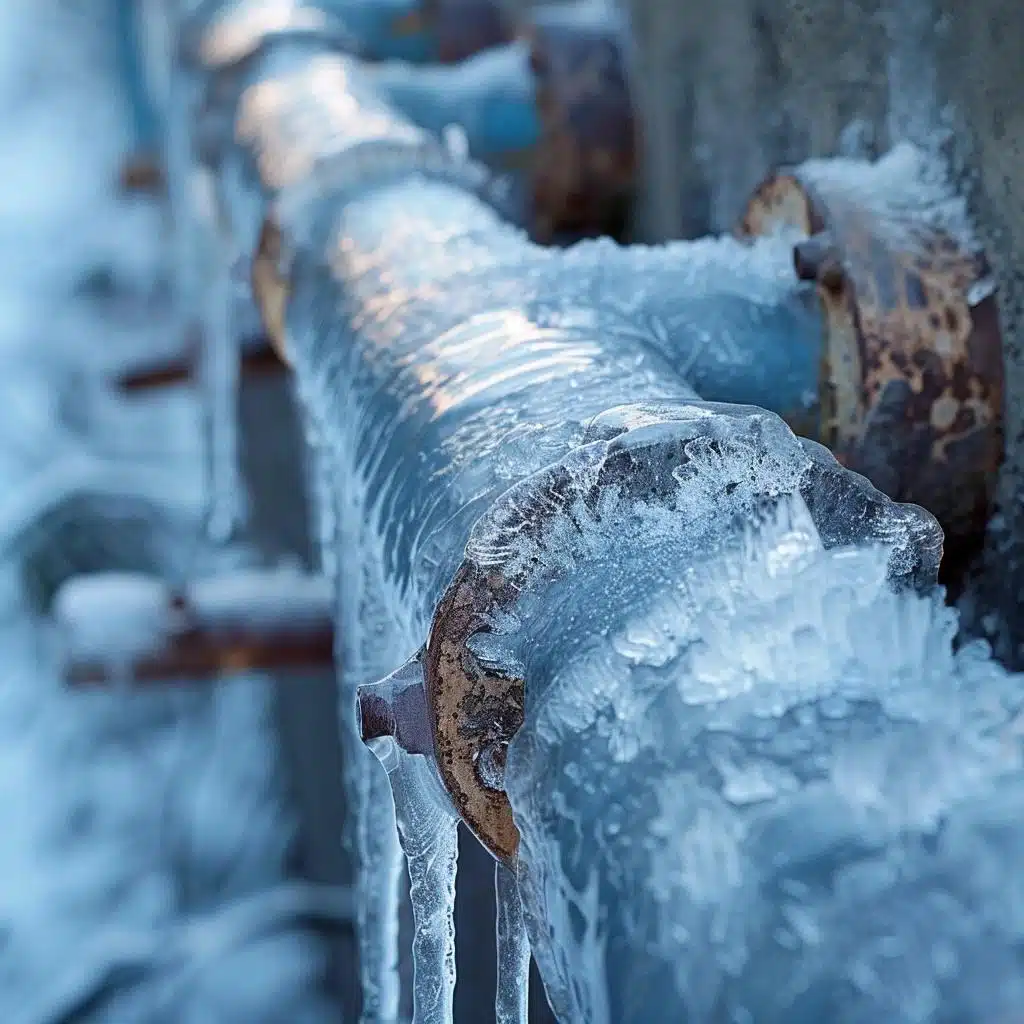Almost everyone maintains his or her own rationale on the subject of Prevent Frozen Pipes .

Cold weather can wreak havoc on your plumbing, especially by freezing pipes. Here's how to stop it from taking place and what to do if it does.
Introduction
As temperature levels decrease, the danger of icy pipelines increases, possibly causing costly repair services and water damages. Comprehending exactly how to stop icy pipelines is essential for house owners in cool environments.
Avoidance Tips
Shielding at risk pipelines
Wrap pipes in insulation sleeves or use warmth tape to secure them from freezing temperatures. Focus on pipelines in unheated or exterior locations of the home.
Home heating techniques
Keep indoor rooms effectively warmed, especially areas with plumbing. Open closet doors to enable warm air to flow around pipelines under sinks.
How to recognize frozen pipelines
Search for lowered water flow from faucets, uncommon odors or sounds from pipelines, and noticeable frost on subjected pipelines.
Long-Term Solutions
Structural changes
Take into consideration rerouting pipes far from exterior walls or unheated locations. Add added insulation to attics, cellars, and crawl spaces.
Upgrading insulation
Purchase top notch insulation for pipelines, attic rooms, and walls. Proper insulation helps preserve regular temperatures and decreases the threat of frozen pipelines.
Securing Outdoor Plumbing
Garden hose pipes and outside faucets
Separate and drain pipes garden tubes prior to winter season. Mount frost-proof spigots or cover outdoor taps with insulated caps.
Recognizing Icy Pipelines
What creates pipes to ice up?
Pipelines ice up when exposed to temperature levels listed below 32 ° F (0 ° C) for extended periods. As water inside the pipes freezes, it broadens, taxing the pipe wall surfaces and possibly creating them to break.
Threats and problems
Frozen pipes can lead to supply of water disruptions, property damages, and costly repair work. Ruptured pipelines can flooding homes and cause substantial structural damage.
Indicators of Frozen Piping
Recognizing icy pipelines early can prevent them from rupturing.
What to Do If Your Pipes Freeze
Immediate actions to take
If you believe frozen pipelines, maintain taps available to relieve pressure as the ice thaws. Make use of a hairdryer or towels taken in hot water to thaw pipes gradually.
Final thought
Preventing icy pipelines requires proactive actions and fast reactions. By understanding the reasons, indications, and preventive measures, home owners can safeguard their pipes during cold weather.
Helpful Tips to Prevent Frozen Pipes this Winter
UNDERSTANDING THE BASICS: WHY PIPES FREEZE AND WHY IT’S A PROBLEM
Water freezing inside pipes is common during the winter months, but understanding why pipes freeze, and the potential problems it can cause is crucial in preventing such incidents. This section will delve into the basics of why pipes freeze and the associated problems that may arise.
THE SCIENCE BEHIND FROZEN PIPES
When water reaches freezing temperatures, it undergoes a physical transformation and solidifies into ice. This expansion of water as it freezes is the primary reason pipes can burst. As the water inside the pipe freezes, it expands, creating immense pressure on the walls. If the pressure becomes too great, the pipe can crack or rupture, leading to leaks and water damage.
FACTORS THAT CONTRIBUTE TO PIPE FREEZING
- Low Temperatures: Extremely cold weather, especially below freezing, increases the risk of pipes freezing.
- Uninsulated or Poorly Insulated Pipes: Pipes located in unheated areas, such as basements, crawl spaces, or attics, are more prone to freezing. Insufficient insulation or lack of insulation altogether exacerbates the problem.
- Exterior Wall Exposure: Pipes running along exterior walls are susceptible to freezing as they encounter colder temperatures outside.
- Lack of Heating or Temperature Regulation: Inadequate heating or inconsistent temperature control in your home can contribute to frozen pipes.
PROBLEMS CAUSED BY FROZEN PIPES
WHY CERTAIN PIPES ARE MORE PRONE TO FREEZING
- Pipe Bursting: As mentioned earlier, the expansion of water as it freezes can cause pipes to burst, resulting in significant water damage.
- Water Damage: When pipes burst, it can lead to flooding and water damage to your property, including walls, ceilings, flooring, and personal belongings.
- Structural Damage: Prolonged exposure to water from burst pipes can compromise the structural integrity of your home, leading to costly repairs.
- Mold and Mildew Growth: Excess moisture from water damage can create a favorable environment for mold and mildew growth, posing health risks to occupants.
- Disrupted Water Supply: Frozen pipes can also result in a complete or partial loss of water supply until the issue is resolved.
https://busybusy.com/blog/helpful-tips-to-prevent-frozen-pipes-this-winter/
- Location: Pipes located in unheated or poorly insulated areas, such as basements, crawl spaces, attics, or exterior walls, are at higher risk of freezing.
- Exterior Pipes: Outdoor pipes, such as those used for irrigation or exposed plumbing, are particularly vulnerable to freezing as they are directly exposed to the elements.
- Supply Lines: Pipes that carry water from the main water supply into your home, including the main water line, are critical to protect as freezing in these lines can affect your entire plumbing system.
- Underground Pipes: Pipes buried underground, such as those connected to sprinkler systems or outdoor faucets, can be susceptible to freezing if not properly insulated.

As an avid reader on How to Prevent Your Pipes From Freezing, I thought sharing that piece of content was beneficial. Enjoyed our content? Please quickly share it. Let other people find it. Thanks for your time. Revisit us soon.
Get A Free Estimate
Comments on “Protecting Against Frozen Plumbing in Cold Weather: Critical Strategies”